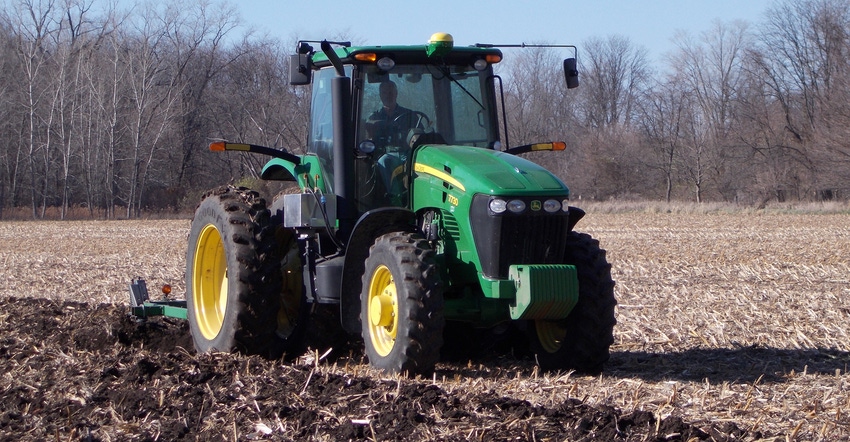April 14, 2020

As COVID-19 continues to dominate the daily news and heighten uncertainty around the world, farmers and others in rural Iowa aren’t immune. Spread of the new coronavirus has disrupted everything — from family lifestyles, to local businesses, to commodity markets and more.
Iowa State University Extension and Outreach offers multiple resources to help Iowa’s farmers and others during this difficult time. “As the COVID-19 pandemic continues to impact ag markets and supply chains, we have resources that can help,” says Chad Hart, an economist and ISU Extension grain markets specialist. “We are seeing the financial crunch hit across all of agriculture.”
Hart says one of the resources Iowans are turning to are the farm financial associates, who volunteer with the Farm Financial Planning Program at ISU Extension. There are six financial associates who cover the state, with backgrounds in banking and lending. The associates work with farmers on individual financial plans and advising.
Related: Complete coronavirus coverage
Another resource is the ISU Extension Farm Management team. A combination of eight field specialists and 10 state specialists are available to help farmers with financial and risk management options, understanding government programs, business planning, marketing and environmental management policies.
The pandemic is causing significant market declines in both crop and livestock sectors. The crop markets have seen as much as a 10% price decline, and 20% in livestock.
Hart reminds Iowans to follow the updates and budgeting tools found in the monthly editions of Ag Decision Maker, and to take advantage of the Livestock Enterprise Budgets for Iowa, as producers track the rapidly changing markets. Agronomic information is available on the ISU Extension and Outreach Integrated Crop Management website. With the passage of multiple federal stimulus packages, farmers can review their options on the COVID-19 web page provided by the Center for Agricultural Law and Taxation at ISU.
It’s also critically important for farmers and farm workers to remain healthy during this time. That includes following the guidance of state and federal health officials and seeking additional support if feeling stressed. ISU Extension operates a 24/7 hotline called Iowa Concern, which is available at 800-447-1985.
Looking at ag markets
As difficult as the last few weeks have been, Hart says he’s optimistic that crop and livestock markets will improve when we get beyond the pandemic. “When you think about the underlying demand for our product, it’s still very good,” he says. “What the markets are signaling is once we get past this market disruption, there is reason for optimism again.”
The optimism lies not only with a healthy country, but also implementation of the recently approved Phase I trade deal with China, which includes the purchase of $12.5 billion in additional ag products in 2020, and $19.5 billion in 2021.
Looking at May 2020 corn futures prices, Hart notes that the price slide due to the COVID-19 outbreak has been roughly 45 cents per bushel for nearby corn futures. That’s about a 12% price decline. So, the corn market is holding up better than most other markets (stock market, energy, etc.). The federal economic stimulus package provided some initial support, but the market has stepped back again. The largest concern at the moment is the status of the ethanol industry, as the most recent data points to a sizable cut in ethanol production.
Nearby futures for soybeans had shaken off the virus concerns to gain and recoup most of the price decline as of last week. Reasons for the rebound are reports of additional export sales and the threat of port disruptions in South America, due to a combination of labor problems and COVID-19. However, COVID-19 concerns slammed most markets on April 1 and the downward move has mostly continued since then.
USDA COVID-19 resources
If you have questions about USDA farm programs, you can get the answers from your local USDA Service Center staff. Call to make an appointment, as they are not accepting walk-in traffic. The centers are open for business by phone appointment only. While the program delivery staff will continue to come into the office, they are working with producers by phone and using email and online tools whenever possible.
The Farm Service Agency, Natural Resources Conservation Service and other USDA agencies also have helpful information online. Visit usda.gov/coronavirus for answers to frequently asked questions regarding USDA agencies and schedules.
Read more about:
Covid 19About the Author(s)
You May Also Like






